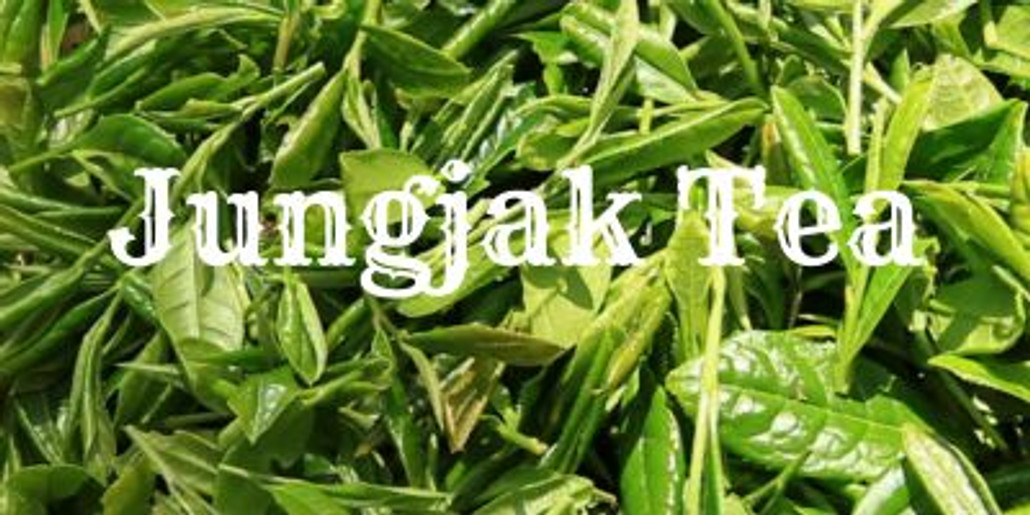Posted by Carol Fergishire on May 20th 2023
Jungjak Tea: The Artistry of Korean Tea Culture in Every Cup
When we explore the tapestry of world teas, Korea offers a unique canvas with its rich tradition and finely crafted brews. Among these, Jungjak tea, a high-grade green tea, paints a striking picture. With its distinct character and the meticulous artistry involved in its creation, Jungjak takes us on an immersive voyage into the vibrant landscapes and history of Korean tea.
Origins and History: A Taste of Korea's Legacy
Born from the fertile terrains of South Korea, particularly the well-known tea regions of Boseong and Jeju Island, Jungjak tea holds a revered position in the country's tea culture. The term "Jungjak" translates to "medium sparrow" in Korean, referring to the sparrow's beak-like shape of the tea leaves harvested at this time. Picked after the Ujeon and Sejak harvests, Jungjak is cherished for its depth of flavor and fragrance.
Cultivation and Processing: The Careful Craft of Jungjak
The artistry of Jungjak tea begins in the lush tea gardens of Korea during the spring harvest season. Following the plucking of Ujeon and Sejak, Jungjak leaves, slightly more mature yet still full of vitality, are carefully picked.
Post-harvest, the tea leaves undergo a meticulous process involving withering, rolling, and drying. An essential stage in crafting Jungjak involves heating the leaves to halt oxidation and preserve their vibrant green hue. This stage, known as 'kill-green', requires precision and skill, encapsulating the craft and dedication of Korean tea masters.
Flavor Profile: The Harmonious Notes of Jungjak
Jungjak tea offers a delightful sensory experience. Dry leaves radiate a pleasing, grassy aroma that sets the stage for the symphony of flavors to follow. When steeped, Jungjak reveals a beautiful yellow-green infusion, soothing and inviting.
The tea dances on the palate with a balance of sweet, slightly grassy, and mildly astringent notes. The flavor, more robust compared to Ujeon and Sejak, is pleasingly rich, reflective of the slightly mature leaves from which Jungjak is made.
Health Benefits: Jungjak's Nod to Wellness
Beyond its taste, Jungjak is a powerhouse of health benefits typical of green teas. It's rich in antioxidants, including catechins and flavonoids, that promote heart health, boost metabolism, and may protect against certain cancers. Additionally, theanine, an amino acid present in Jungjak tea, fosters a state of calm alertness, adding a mental wellness aspect to the physical benefits.
Conclusion: In Praise of Jungjak Tea
More than just a beverage, Jungjak tea is an immersive experience, a celebration of Korea's tea heritage. It offers a moment of tranquility and mindfulness in our often chaotic lives. Let this exquisite tea be your escape into the harmonious world of Korean tea, one cup at a time.
To Jungjak, the medium sparrow tea - a flavorful infusion, a healthful elixir, a proud torchbearer of Korean tea tradition, and your mindful companion in the journey of tea appreciation. It reminds us to cherish the simpler pleasures of life and revel in the beauty of tradition and craftsmanship.
So, invite Jungjak into your tea repertoire, appreciate the craft that goes into its making, and let its unique character make your tea-drinking sessions more enriching. As the Koreans say, "One time, one meeting" – make each encounter with Jungjak a memorable celebration.

